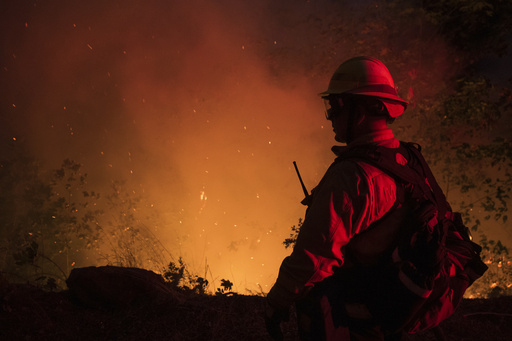New research presented at the Alzheimer’s Association International Conference suggests that wildfire smoke may pose a greater risk to brain health compared to other forms of air pollution and could be linked to a higher possibility of developing dementia. This study comes as large parts of the western United States are experiencing poor air quality due to wildfires.
The study focused on fine particulate matter, known as PM2.5, which consists of tiny particles that can enter the lungs and bloodstream. This type of pollution, originating from various sources including wildfires, traffic, and industrial activities, is known to contribute to heart and lung diseases and is now being associated with a potential role in dementia.
Researchers analyzed health data from 1.2 million older adults in Southern California between 2009 and 2019, estimating their exposure to PM2.5 from wildfire smoke or other sources. The study revealed that the risk of receiving a new dementia diagnosis rose by approximately 21% with every 1 microgram increase in wildfire particle concentration, whereas the risk increased by 3% for every 3 microgram rise in non-wildfire particles.
The reasons behind this difference in risk remain unclear, prompting the need for further research, as wildfires become more prevalent. Maria Carrillo, the chief science officer at the Alzheimer’s Association, emphasized the importance of investigating this correlation, particularly for low-income communities who may have limited access to clean air.
While health advisories recommend staying indoors during periods of poor air quality, many individuals, especially those working outdoors or lacking the option to stay home, may face challenges in avoiding exposure to harmful pollutants.
